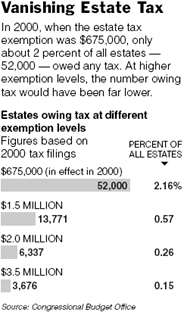Category: Probate and Estate AdministrationEstate administration is the process by which a deceased person's property, known as the 'estate,' is passed to his or her heirs and legatees (people named in the will). Estate administration encompasses all assets of the decedent - real estate, joint accounts, insurance, IRA', etc. - anything and everything a decedent had any interest in when they died. Probate is a subset of estate administration - dealing solely with those assets owned in a persons sole name, with no beneficiary designation at the time of his or her death. The are known as "probate assets". Probate assets are controlled by the will, and the procedure of probate is governed by the Surrogate court. The entire process is a lengthly one, taking a year, or in many cases, several years.
The emotional trauma brought on by the death of a close family member often is accompanied by bewilderment about the financial and legal steps the survivors must take. The spouse who passed away may have handled all of the couple's finances. Or perhaps a child must begin taking care of probating an estate about which he or she knows little. And this task may come on top of commitments to family and work that can't be set aside. Finally, the estate itself may be in disarray or scattered among many accounts.
Below is a general outline of the steps the surviving family members should take. These responsibilities ultimately fall on whoever was appointed executor (or personal representative if there was no will). Note that matters can be much more complicated in the absence of a will, because it may not be clear who has the responsibility of carrying out these steps.
First, secure the tangible property. This means anything you can touch, such as silverware, dishes, furniture, or artwork. You will need to determine accurate values of each piece of property, which may require appraisals, and then distribute the property as the deceased directed. If property is passed around to family members before you have the opportunity to take an inventory, this will become a difficult, if not impossible, task.
Second,
take your time. You do not need to take any other steps immediately. While bills do need to be paid, they can wait a month or two without adverse repercussions. It's more important that you and your family have time to grieve. Financial matters can wait.
When you're ready, you should meet with an attorney experienced in estate planning and estate administration to review the steps necessary to administer the deceased's estate. An attorney will review and organize as much information as possible about the decedent's finances, taxes and debts and use that to identify the executors responsibilities, any areas of potential liability, and map out a plan of action.
The exact rules of estate administration differ from case to case, but the following order generally applies:
1.
Filing the will and petition at the surrogate court in order to be appointed executor or personal representative. In the absence of a will, heirs must petition the court to be appointed "administrator" of the estate. An adminstrator will likely be required to post a bond.
2.
Marshaling, or collecting, the assets. This means that you have to find out everything the deceased owned - not always an easy task. Many times we recommend that you consolidate all the estate funds to the extent possible, to make the situation more manageable. Bills and bequests should be paid from a single checking account, either one you establish or one set up by your attorney, so that you can keep track of all expenditures.
3.
Paying bills and taxes. If an estate tax return is needed it must be filed within 9 months of the date of death. If a New Jersey inheritance tax return is needed, it must be filed within 8 months of death. If you miss these deadlines, severe penalties and interest may apply. If you do not have all the information available in time, you can file for an extension and pay your best estimate of the tax due.
4.
Filing tax returns. You must also file a final income tax return for the decedent and, if the estate holds any assets and earns interest or dividends, an income tax return for the estate.
5.
Distributing property to the heirs and legatees. Generally, executors do not pay out all of the estate assets until all liabilities are known, including a final approval of any tax returns.
6.
Filing a final accounting. The executor may file an informal account with the beneficiaries, or a formal account with the surrogate court (depending on the circumstances. This accounting will list any income to the estate since the date of death and all expenses and estate distributions. Once the court approves this final account, the executor can distribute whatever is left in the closing reserve, and finish his or her work.













